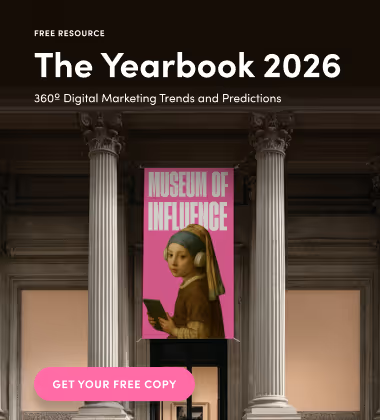Once the ultimate playground for millennial marketing, Coachella’s cultural relevance is shifting. Brands, take note: Gen Z is rewriting the rules of the desert.
The End of the Millennial Coachella Era?
There was a time when Coachella was more than just a music festival—it was a prime marketing opportunity, and sponsorships were highly lucrative. Brands at Coachella like Revolve, H&M, and Sephora built entire activations around it, creating influencer-stacked events that dominated Instagram feeds and boosted sales. But that was then, which begs the question: are Coachella brand activations still resonating?
Today, millennial engagement with Coachella seems to be fading. As Vogue Business notes, brands that once found major ROI through Instagram-worthy desert content are now pulling back. “Coachella’s ability to drive desirability among millennials appears to be on the decline,” writes journalist Lucy Maguire, citing shifts in both consumer interests and digital behavior.
Reports from Khoros show that millennial social media engagement is plateauing. Instagram growth among 25 to 40-year-olds is slowing, and time spent on platforms like Facebook is declining year-over-year. The millennial appetite for hyper-curated content is no longer what it once was.
Gen Z Keeps the Glitter Alive
But Coachella isn’t done—it’s just being redefined. For Gen Z, the festival is less about glamour and more about community, self-expression, and storytelling. TikTok has replaced Instagram as the platform of choice, offering a messier, more real-time glimpse into festival life.
According to a recent Statista survey, 62% of Gen Z consumers prefer brands that showcase “real people, not celebrities” in their content. This aligns with the rise of lo-fi Coachella TikToks, where authenticity trumps polish.
The shift is evident in the marketing strategies of brands like Erewhon and Marc Jacobs’ Heaven line, which embraced Gen Z sensibilities through thrift-core fashion, smaller activations, and influencer partnerships that feel less “spon-con” and more spontaneous.
And the numbers back it up. Morning Consult reports that Gen Z consumers are 42% more likely than millennials to be influenced by TikTok content when making purchasing decisions.

Image Source: Shutterstock
What Marketers Need to Know
Coachella hasn’t lost its cultural capital, but its audience and impact have evolved. Here's what today’s marketers need to consider:
- Shift focus: Millennials may have been the first wave of digital-native consumers, but Gen Z is where the future is heading, especially at experiential events like Coachella.
- Embrace TikTok, ditch the over-polish: Lo-fi, humorous, and raw content performs best with Gen Z. Think vlog-style recaps over DSLR edits.
- Smaller is better: Micro-influencers, nano-events, and authentic storytelling go further with Gen Z than VIP wristbands and velvet ropes.
The Cultural Shift Brands Can’t Afford to Ignore
Coachella's millennial-driven sponsorship era may be winding down, but for Gen Z, the journey is only beginning. For brands, this isn’t a retreat—it’s a remix.
In today’s world, successful brand activations aren’t about being the biggest or fanciest—they’re about creating real connections that resonate with your audience. Brands that thrive at Coachella now create moments that feel authentic, inclusive, and purpose-driven—experiences designed not just for content, but for connection.
Whether it’s a hands-on booth, a collab with a niche creator, or an activation rooted in sustainability or social value, the new rule is clear: show up, but show up meaningfully. Coachella brand activations aren’t over—they’ve simply evolved.


